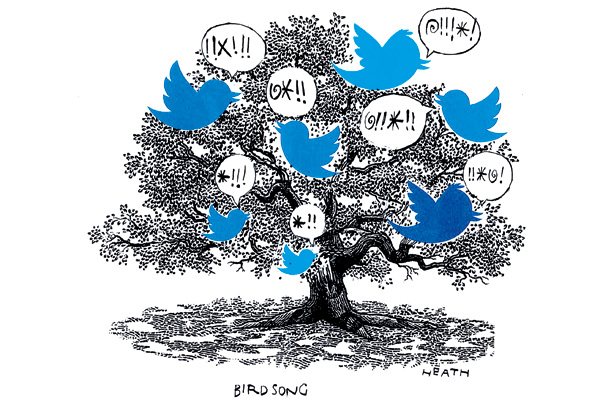Twitter has never been friendly to British politicians. From MPs’ gaffes that spread across the platform like wildfire to the incessant trolling, it can’t make good bedtime reading for anyone on the front benches. Most MPs would probably dismiss most of what they read on Twitter as either stupid or horrible.
But as we approach the General Election, the volume of chatter is starting to get louder. Increasing numbers of people are turning to Twitter to have their say in the run up to May 2015. Much of it is neither stupid nor horrible.
In work being done by the Centre for Social Media Analysis (CASM) for the Sunday Times, we have begun to analyse the million or so tweets sent to MPs and PPCs over the last three weeks. The currency we deal in is ‘cheers and boos’, which we analyse using specialist software. A tweet classed as a ‘cheer’ is usually praise, or a message of thanks or encouragement:
– @ChukaUmunna seems very pro localism, abolish fptp and more local representation and devolution. Think I can agree with that…
— Matthew Field (@matthfield) February 5, 2015
A boo, by contrast, tends to express disagreement or disappointment with whatever the MP did last, and they swing wildly from the polite to the unprintable:
@ChukaUmunna how can you spend $15 on a sweeping brush and call yourself a buisness watever.wen you can get one at primark for $1.99 idiot. — Nhoj senoj (@senoj_nhoj) February 1, 2015
The more central the figure, the more frequent the boos. Backbench MPs and PPCs are remarkably well received on Twitter: 64 percent of tweets sent to PPCs over the last three weeks have been cheers. But week on week, David Cameron and Ed Miliband hold the top two spots for number of ‘boos’ received. For every lonely voice cheering them on there are five critical ones.
When Twitter makes the news, particularly recently, the headlines frequently centre on the trolling and abuse that public figures receive on the platform. It is true that politicians come in for more than their fair share of insults, and Miliband and Cameron more than most. But there is a danger that because of this, Twitter is discounted as a medium altogether: a wasteland that serves as nothing more than a mouthpiece for the bored and vainglorious to listen to their own voices. In fact, most of the ‘boos’ are far more complex and interesting than the epithets that hit the headlines. They show that many people are using Twitter to let their elected leaders know exactly what’s on their minds.
Take the two thousand or so ‘boos’ sent to Ed Miliband over the last fortnight. Yes, there are three hundred references to ‘Beaker’. But there is an awful lot of engagement, too. The ‘boos’ ridicule his party’s handling of the HSBC scandal, calling out hypocrisy from the Labour leader himself. He is singled out as the focal point for criticism of Labour policy on fracking, on PFI contracts and, above all else, on Rotherham. Twitter may not be a perfect representation of the UK’s population, but it is a fantastic barometer of the issues that are being discussed at any one time.
Social media allow MPs and aspiring PPCs to engage with their constituents. It is fast, direct and accountable: exchanges tend to be held in public. But for policy makers – those at the centre of government – it could also be used as a measure for every policy, every speech, every public appearance. Twitter offers a clear picture of what does and doesn’t impress its millions of users. For this reason alone, it is worth listening to.
Alex Krasodomski is a researcher at the Centre for the Analysis of Social Media at Demos. He can be found tweeting @akrasodomski
You might also enjoy reading:
The era of stable government is over
 Join us on 23 March for a Spectator discussion on whether the era of stable government is over with Matthew Parris, James Forsyth, Jeremy Browne MP, Vernon Bogdanor and Matthew Goodwin. The event will be chaired by Andrew Neil. In association with Seven Investment Management. For tickets and further information click here.
Join us on 23 March for a Spectator discussion on whether the era of stable government is over with Matthew Parris, James Forsyth, Jeremy Browne MP, Vernon Bogdanor and Matthew Goodwin. The event will be chaired by Andrew Neil. In association with Seven Investment Management. For tickets and further information click here.






Comments